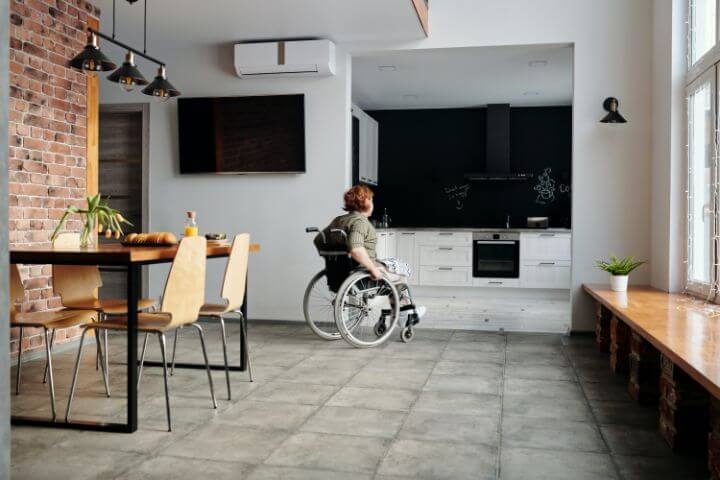Paying for at-home care services can be very helpful for you, or a loved one, to be able to stay in your home and keep your independence but it can become very expensive very quickly.
There are definitely some medical costs you can deduct from your taxes to help with the cost of paying for the care you or your loved one needs.
Contents
What Is Covered?
The IRS allows individuals to have certain medical deductions to help with the cost of doctors, surgeons, therapists and even prescription medications. On top of that, people can also deduct the cost of hospital stays and nursing home care.
These allowances definitely helps to pay for medical costs, but what happens when you or your loved one needs care at home? As much as hospitals and nursing homes try to help, they can’t be around all the time and some individuals don’t necessarily need full time nursing home care.
The good news is that you may be able to deduct some home care costs on your taxes to make the most of it, and help to cover some of the costs.
Home Care Costs Deductions
There are a couple different categories of home care, as defined by the IRS, so before filing your taxes you will need to make sure you know which one you qualify for and how to claim the costs appropriately.
At-Home Maintenance and Personal Care
You are allowed to make deductions for personal care services for people who are living with a chronic illness and/or are disabled (either temporarily or permanently). Individuals who have severe cognitive impairment may also be able to deduct care services due to requiring help with specific tasks around the house.
To qualify to deduct costs under this category, a person must be functionally incapacitated and unable to complete 2 (or more) of the necessary daily activities for functioning, unless they are assisted by another person. The IRS lists the necessary daily activities as bathing, dressing, toileting, eating and transferring.
You might also like Helping Seniors with Finances – How Can I Protect My Elderly Parents Money?
At-Home Nursing Services
This is another category of at-home care, as defined by the IRS, and it’s different from just maintenance and personal care. In this category, a trained nurse will be coming into your home whereas with personal care it may be performed by a personal support worker instead of a licensed and trained nurse.
A trained nurse may provide services like
-
- Giving medications
- Assistance with toileting
- Bathing and dressing
- Changing dressings on incisions and wounds
A personal support worker may not be able to give medications or have the training to change dressings on incisions, so these are the two main differences in getting personal assistance and in-home nursing care.

On top of those medical duties, a nurse may help you or your loved one with other tasks around the house to make life easier. This could include a light cleaning up, laundry, and even grocery shopping or meal preparation.
It’s important to note that the household services provided may not be able to be included on your income tax deductions, so you will need to keep a record of wages paid for medical/nursing care and those wages that are paid for the services to help out.
As an exception, if an individual is physically disabled they may be able to write off the helpful services around the house because the person is really unable to do the daily tasks on their own.
On top of that, if your at-home care worker eats at your home (and you’re providing meals for them) you may be able to include this in your tax write offs. You cannot deduct the cost of you and your family’s meals on your taxes, so you will have to determine the cost of just the meals you’ve prepared for your home care worker.
Employment Taxes
Depending on how your at-home care is set up, the person providing the care for you or your loved one could actually be considered a household employee.
This may not always be the case, however if you pay Medicare tax, state tax, social security tax, or any (state or federal) unemployment tax on behalf of the home care worker these expenses may be things you can deduct from your income taxes.
There are documents that can help you determine if this situation applies to you, and if you pay these expenses for your home care worker you can then write them off.
You might also like How Much Does Senior Day Care Cost
Home Modifications
Depending on the illness or condition you, or your loved one, are living with you may have needed to make some modifications to your home to make it more accessible and safe to live in.
You may be able to deduct the cost of these modifications from your taxes, as long as these modifications are not going to add to the resale value of your home (provided you own it).
Modifications you can write off could include
- Changing doorways to widen/accommodate for wheelchairs or walkers
- Modifying bathrooms to include grab bars or railings
- Adding an access wheelchair ramp outside of your home
- Stair chair lifts to accommodate moving from floor to floor
- Lowering counters to make them accessible to someone in a wheelchair
- Changing kitchen cabinets to make them more accessible
On top of this, if you or your loved one has a hearing impairment you may be able to deduct the costs of adaptive devices – like TTY – to help navigate.
So, How Much Can You Deduct?
When it comes to filing taxes and preparing your deductions, the amount you can deduct is going to be based on a couple different factors.
The IRS has general guidelines, though, as to exactly how much you can deduct on your taxes. According to the guidelines of the IRS, you are able to deduct whatever medical expenses you have incurred that exceed 10% of your gross income.
If you have insurance that helps to pay for the cost of medical care or at-home care, those premiums may be able to be deducted from your taxes as well.
If you have benefits through your employer, the portion that your employer deducts from your paycheque is not eligible to be deducted on your income tax filing. This is because you’ve already received the tax benefit from that deduction in the form of your income (it lowers your taxable income).
You might also like How to Get Into Assisted Living With No Money
Keep Your Receipts
In order to write off your expenses, you may need to prove that you paid for the services during the year you’re filing taxes for. You may choose to keep digital receipts or paper receipts, either is fine but just make sure you keep the receipts.
The IRS may audit your filing, especially if there are significant deductions that weren’t there before. If you aren’t sure exactly how or where to deduct from on your taxes, you can hire an accountant to review your situation and make sure you are getting all the deductions you can benefit from.
Your accountant will also be able to make a long-term plan for you, working with your income and your medical needs to make sure you are properly filing and maximizing the amount of benefits you receive.
Final Thoughts
Dealing with a condition where you need help at home can be tough, especially if you live on your own. On top of that, knowing that your loved one may be unable to take care of themselves – or certain tasks around the house – can leave you feeling anxious that something is going to happen when you aren’t around.
However, having a home care worker come in that is going to look out for your loved one and take care of them can give you huge peace of mind. The home care worker will make sure medications are given on time, your loved one has clean clothes, is able to bathe and even help them eat properly and clean up around the house.
As much as knowing your loved one is cared for, and has a companion to chat with during the day, it’s impossible to ignore the cost of it and how it can add up over time.
Paying for medical care as we age can become very expensive, but it’s important that we get proper care so that we don’t hurt ourselves or make our conditions worse. Even if you can’t write off the entire cost, or you don’t get the entire cost back, home care is worth it to help take care of you or your loved one.
Home care workers help with medical and personal care needs, but they also provide companionship for your loved one to talk to during the day. They will chat with them, spend time with them and help them out all at the same time.
This gives you the freedom to work and take care of your family without worrying about your loved one, and you can spend time with your loved one as family and not having to be a care giver all the time.
If you have questions about your financial situation and how to write off medical costs, meet with your accountant and make a plan to maximize your benefits and tax returns.





